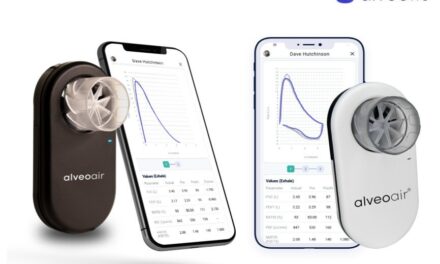Amsterdam-based Royal Philips announces that it has received 510(k) clearance from the U.S. FDA to market a wide range of its ultrasound technologies for the management of COVID-19-related lung and cardiac complications. Handheld and portable ultrasound solutions, in particular, have become valuable tools for clinicians treating COVID-19 patients due to their imaging capabilities, portability, and ease of disinfection.
As a result of this regulatory clearance, Philips can provide detailed, practical guidance to support clinicians using its systems and software for patients affected by COVID-19. The clearance applies to Philips ultrasound systems including the EPIQ series, Affiniti series, Lumify, CX50 and Sparq diagnostic ultrasound systems, and to off-cart solutions like QLAB Advanced Quantification Software.
Ultrasound has shown value in imaging peripheral lung tissue affected by pneumonia, which is closely tied to COVID-19 lung complications. As respiratory strain can also lead to cardiac dysfunction, COVID-19 patients are at increased risk for cardiac complications. A cardiac ultrasound exam can help in evaluating the effects that disease progression may have on heart function.
By imaging COVID-19 patients at the point of care, such as in the emergency department or ICU, clinicians can diagnose and monitor patients without the need to move them around the hospital, helping to reduce the risk of virus transmission to other patients or to healthcare professionals.
“Many healthcare providers have told us that our handheld and portable ultrasound solutions are playing a valuable role in their efforts to combat COVID-19,” says Bich Le, senior vice president and general manager of ultrasound at Philips. “With this regulatory clearance, we can offer clear guidance to ensure safe and effective use of ultrasound to manage COVID-19-related lung and cardiac complications. At the same time, we are investing significantly to ramp up production globally, including at our ultrasound manufacturing plants in the U.S.”





